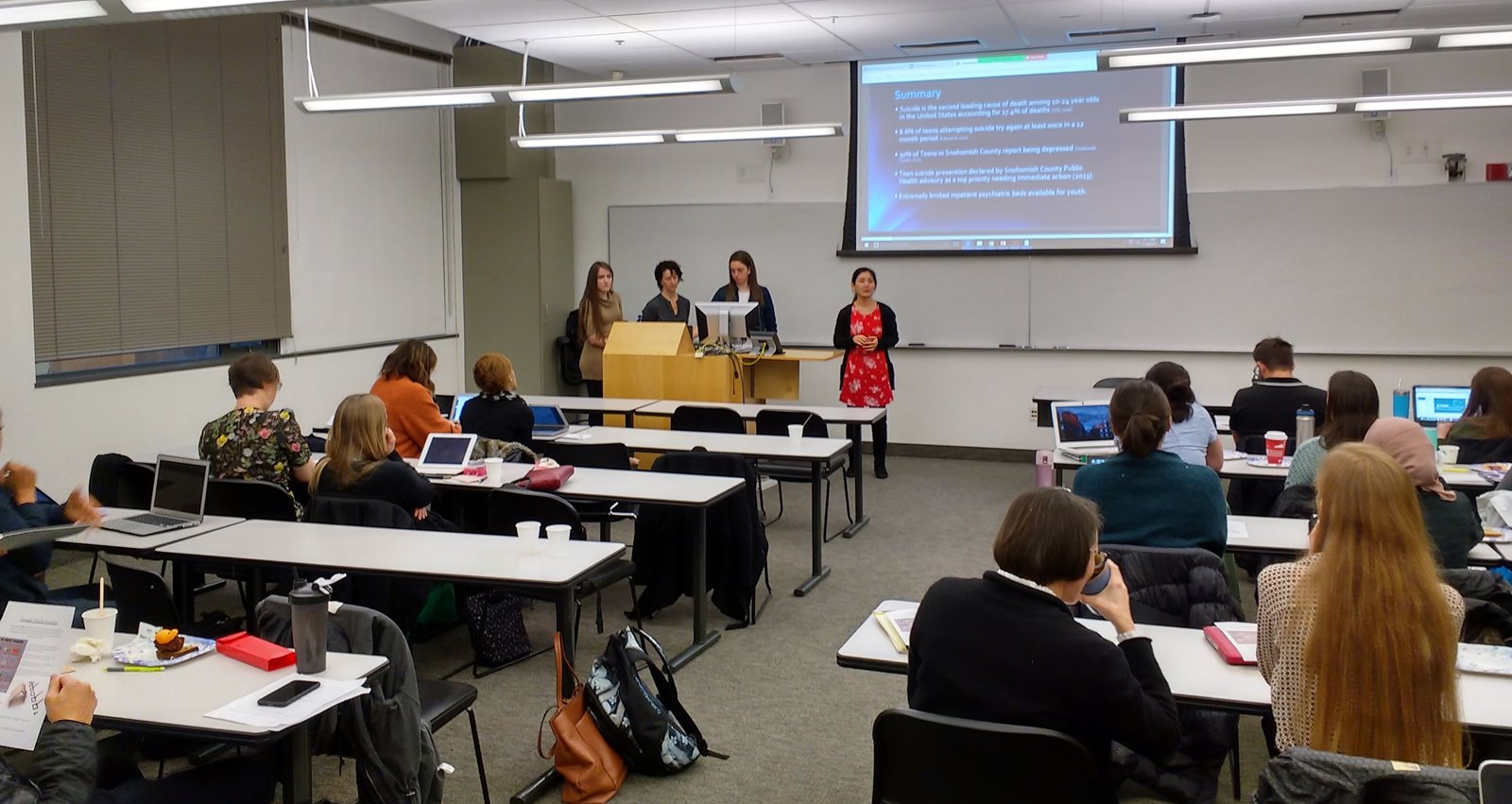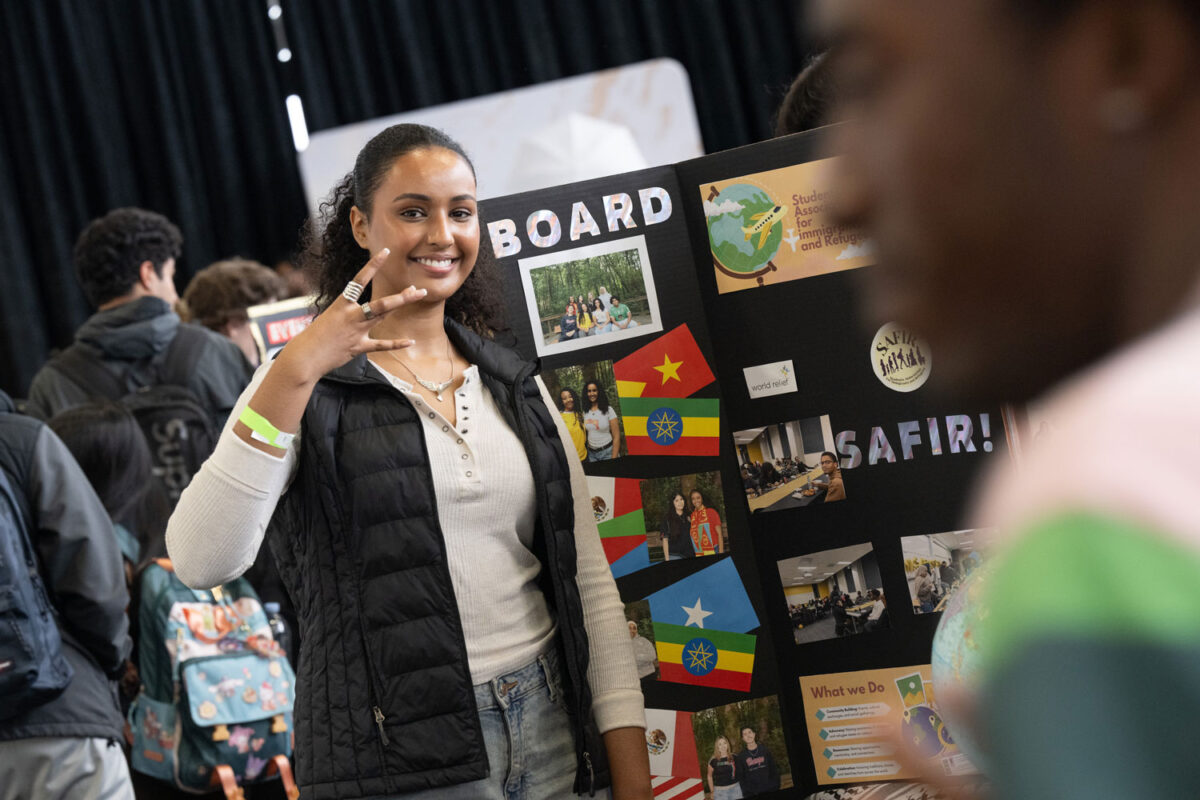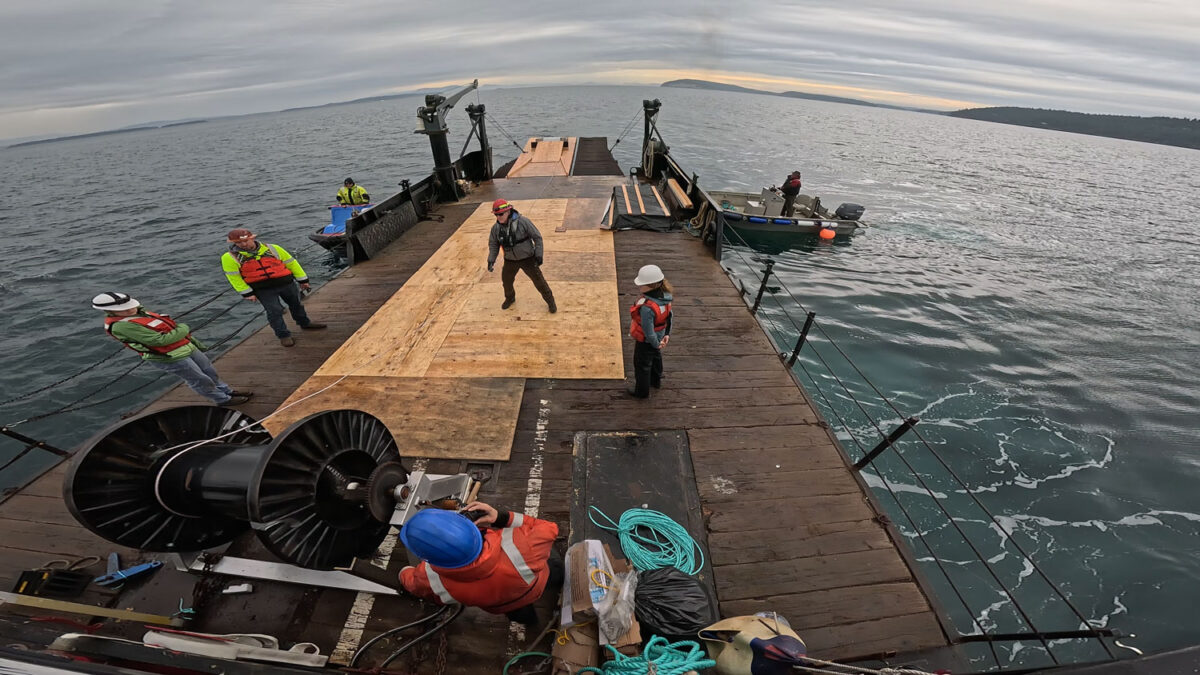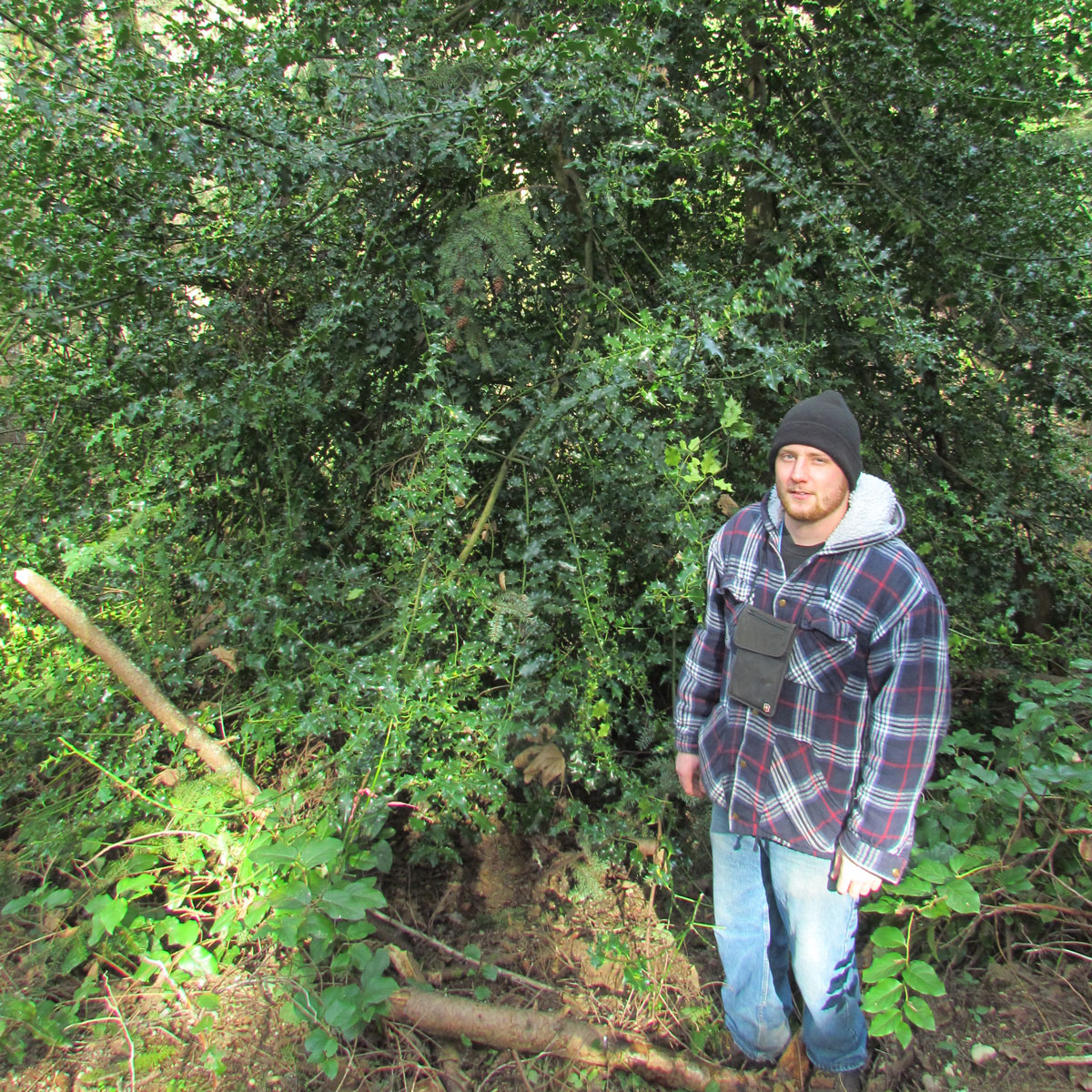From left, Tamara Udodik, Bobbi Beard, Michelle Gillespie and Alice Goodwin. Udodik and Beard are nurses at The Everett Clinic, Gillespie at Valley Medical Center in Renton and Goodwin at Virginia Mason Medical Center in Seattle.
By Douglas Esser
Working nurses who handle fast-paced, intense jobs also make impressive students at the University of Washington Bothell.

“They really understand their patients and their health care needs,” said Anna Winquist, lecturer for the class Translating Scholarly Knowledge to Nursing Practice in the RN to BSN program in the School of Nursing & Health Studies.
The students, all of whom are working nurses, demonstrated their ability to assess and absorb new research when six teams presented their findings Nov. 30 to representatives of Providence Regional Medical Center Everett, their community-based learning partner.

“It has been a delight to see their passion, their energy, their focus, good research and critical thinking skills,” said Gale Springer, a mental health clinical nurse specialist who has been with Providence for 30 years.
Springer sponsored two of the student teams. The first reviewed a screening and education program for new mothers who are abusing drugs or alcohol. The second recommended steps to prevent suicides among teens after they have been treated for an initial attempt to take their lives.
A nurse in the drug and alcohol team noted that postpartum nurses helping women recover from childbirth and learn to care for their babies usually develop a special rapport and trust with the mothers. As needed, the nurses can then talk with them about drug or alcohol abuse in a nonjudgmental way.
“It was empowering and motivating to know that we collaborated with our partner, Gale Springer, on a real-life issue that needs to be addressed in the system,” said Kathryn Newton, who volunteers in Haiti and plans to work as a midwife.
A nurse in the teen suicide team agreed that doing research that can have direct impact in the real world is especially satisfying.
“If we implement it, I think we can save a lot of lives, a lot of teenagers,” said Bobbi Beard, a triage nurse at the Everett Clinic. “I have a lot of parents calling in about teens cutting themselves or attempting suicide, so this has helped a lot.”
All the student presentations, Springer said, were outstanding. “What these nurses are actually doing is taking content and the process of reviewing the literature, and then they’re taking it out in the real-world setting,” she said. “These are best practices.”
The presentations were shared with people outside the classroom by Ana Thompson of UW Bothell Learning Technologies, using a laptop with the Zoom program.
Springer also plans to share the students' presentations with other mental health nurses at Providence — and to follow-up with nurses in the class who work at the hospital.
“I’m going to go after them at work and say, ‘Don’t let it stop here. Let’s take it forward and put it in practice,’” Springer said. “They’re having great ideas.“

Winquist, who once worked at the Everett hospital, connected the student teams with Springer and with other partners who could help the students explore how to put research into practice. Other projects included reducing geriatric falls by using low beds and strategies to help nurses manage “alarm fatigue” because of all the telemetry monitoring alerts. Photo: Gale Springer, left, and Anna Winquist



